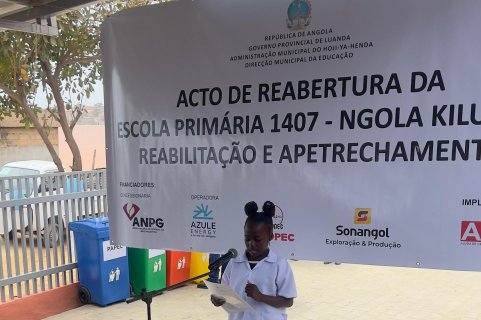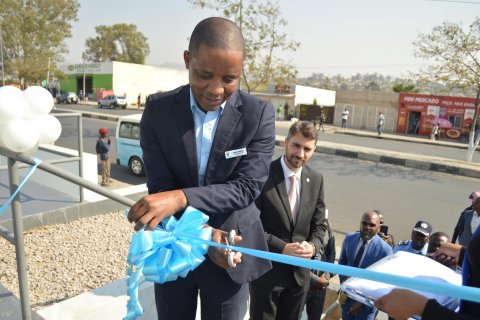The Political and Social Observatory of Angola (OPSA), the Action for Rural Development and Environment (ADRA) and the Social Sciences and Humanities Laboratory (Lab) of the Catholic University of Angola affirm, in a joint position, that the participation of all “ it is a condition of legitimacy, transparency and credibility”.
For these non-governmental organizations (NGOs), gathered in the so-called Reflection, Counseling and Debate Group (GRAD), an interdisciplinary platform of researchers, the public consultations carried out within the scope of the DPA “are far from meeting minimum parameters”.
The proposed law of the new DPA provides for the extension to 20 provinces, which should derive from the division of the provinces of Moxico and Cuando-Cubango, against the current 18 provinces, and to 581 municipalities, against the current 164.
According to the authorities, the initiative aims to respond to the demands of demographic growth, the need to reduce regional asymmetries and to bring power and administration closer to the population.
The organizations recall that on December 7, 2022, in public statements about the DPA, the Minister of State and Chief of Staff of the President of the Republic, Adão de Almeida, announced that the next steps of the DPA would go through public discussion, “but without specifying the terms and modalities", indicating "only that provincial governments and municipal administrations should listen to the populations".
"This public consultation process was conducted in record time and in the middle of the Christmas and New Year's Eve festive season", they say.
“Unfortunately, our history of public consultations has been characterized by notorious methodological deficiencies”, lament the associations that signed the joint position, presented at a press conference in Luanda.
They emphasize that recent news about the closure of the consultation, “in an extremely short period and at an inappropriate time”, indicate that, in many sessions, “it was limited to passing on information about something already decided at a higher level”.
In the document presented by Cesaltina Abreu, co-coordinator of the Lab, and Carlos Cambuta, director general of ADRA, the organizations also consider that the DPA proposal “does not present concrete reasons, based on evidence, criteria or indicators that justify its implementation” .
The executive, who at the beginning of the legislature adopted the motto “work harder and communicate better”, observe, “should at least disclose information” that would allow interested citizens to understand which studies supported this proposal that was submitted for consultation.
Despite having been one of the flags during the first term of the President of the Republic, João Lourenço, and despite being included in the executive’s program, they also point out that decentralization and the establishment of local authorities “are clearly secondary to the unexpected priority given to to the new DPA”.
ADRA, OPSA and Lab also list a series of issues and consider "fundamental and urgent" the broadening of the debate in order to ensure that the Angolan executive clarifies, for example, the criteria for increasing the number of provinces.
“The DPA, even if it is implemented in 2024, from the point of view of public finances, represents an expense”, they emphasize.
Citing estimates made by the economic weekly Expansão, the organizations maintain that the DPA “will have a very high cost of around 5.5 billion kwanzas per year, including salaries and infrastructure, which means an increase of three times more than currently”.
“How will this expense be covered? Do you have fiscal space? Will it bring more costs or benefits”, they question, considering that the consultation should also allow reflections on the implications of the DPA in the political and electoral system, “especially at the level of electoral circles”.
They recommend that the authorities invest in a new and broad public consultation process, inclusive, plural and participatory, to reassess the pertinence of the DPA in the light of the public debate on the next National Development Plan and the respective national and regional development policies.
The need to re-evaluate the pertinence of the DPA as a "strategy of approximation between citizens, government and administration" to the detriment of the decentralization process and the establishment of local authorities and to "unequivocally explain" the implications of the DPA, whether of a budgetary nature, whether of the nature of conditions for the mobilization of resources, are also included in the recommendations.







